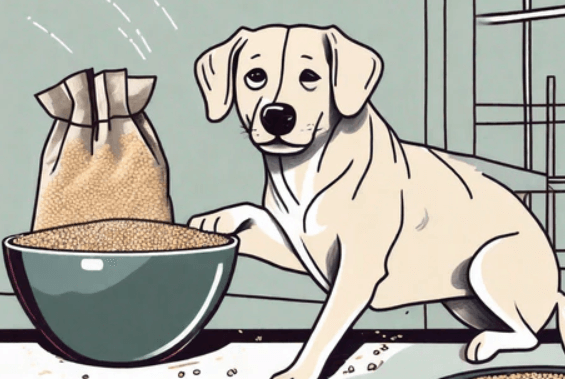Why Some Dogs Thrive on a Grain-Free Diet: Exploring the Benefits

When it comes to feeding your dog, the choices can be overwhelming. One option that has gained popularity in recent years is the grain-free diet. But why do some dogs seem to thrive on this type of diet while others do just fine with grains in their food? The answer often lies in understanding your dog’s needs and how certain ingredients, or the lack thereof, can impact their health. This article will explore why it might be the best choice for some pets.
Reducing Allergies and Sensitivities
One of the primary reasons pet owners choose grain free dog food is its potential to reduce food allergies or sensitivities. Some dogs are allergic or sensitive to grains, and consuming them can lead to unpleasant symptoms, such as itching, skin irritations, digestive upset, or ear infections.
Switching to a grain-free diet may help alleviate these symptoms. Without grains, they are prone to allergies and may experience relief and improved overall health. This is particularly true for dogs with sensitivities to common grains like wheat or corn, which are often found in traditional dog foods.
See also: Why Northern NSW is Perfect for Destination Weddings
Supporting Digestive Health
Grain-free diets are often easier for some dogs to digest. This is especially important for those with sensitive stomachs or digestive issues. Grains can be complex for certain dogs to break down, leading to bloating, gas, or loose stools. By removing grains, many grain-free foods help improve digestion and make it easier for your dog to absorb nutrients.
Furthermore, grain-free foods often contain higher protein and fats, which are essential for energy and overall health. For dogs with digestive sensitivities, this can result in better digestion, more regular bowel movements, and a healthier, happier dog.
Maintaining a Healthy Coat and Skin
Another benefit of a grain-free diet is its potential to improve your dog’s coat and skin. If your dog is experiencing itchy skin, excessive shedding, or a dull coat, a grain-free diet might help. Grains can sometimes contribute to skin conditions, particularly in those with allergies or sensitivities.
Grain-free foods often contain high-quality proteins, omega fatty acids, essential oils that support healthy skin and a shiny coat. For dogs that struggle with skin issues, switching to a grain-free diet can result in noticeable improvements in the texture and appearance of their coat.
Supporting Weight Management
For some dogs, a grain-free diet can help with weight management. Grains like corn and wheat are often used as fillers in food, adding calories without providing high nutritional value. This can lead to weight gain, especially in dogs that are prone to obesity or have a slower metabolism.
Grain-free food typically contains fewer carbohydrates and focuses on providing lean proteins and healthy fats. These ingredients help maintain a healthy weight, especially with regular exercise. A grain-free diet may be particularly beneficial for dogs with weight management challenges or those that require a lower-carb diet for optimal health.
Suited for Active and High-Energy Dogs
Dogs that are highly active or have high energy levels may thrive on a grain-free diet. Because these diets focus on protein-rich ingredients like meat, poultry, and fish, they provide the necessary fuel for active dogs. Proteins are essential for muscle development and energy, making a grain-free diet ideal for working, agility, or pets that require extra stamina. In contrast, some traditional foods high in grains may not provide the same level of sustained energy. Grain free dog food offers a more balanced approach to nutrition for dogs that need to perform at their best.
Grain-free diets offer several potential benefits. Suppose your dog struggles with digestive issues, allergies, or energy levels. In that case, it might be worth exploring a grain-free diet. By consulting with your veterinarian and observing your dog’s response, you can determine if a grain-free option is the best choice for their long-term health and well-being.



